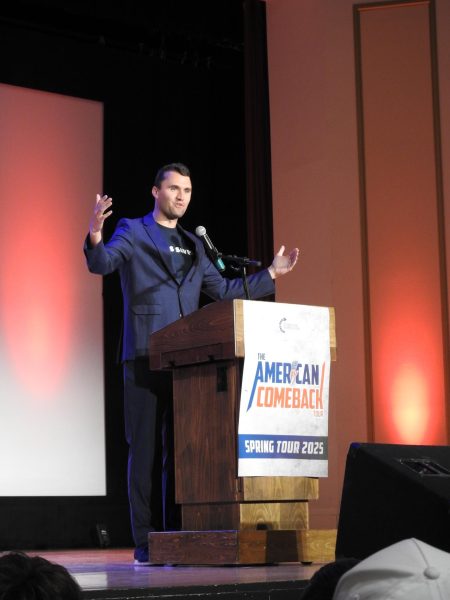Latest sophomore history cheating scandal changes class policies, but will it affect culture?
Sophomore history class policies will see a significant shift after teacher Chris Butler learned of cheating during exams.
Butler first became aware of students cheating with smartwatches after a parent reached out to him. Their child, Butler said, had complained of working hard to get good grades and watching other students cheat for the same result.
After that, he spoke to students about cheating and banned the wearing of smartwatches during exams.
“[Smartwatches] seem to be the new frontier of cheating,” Butler said.
But that didn’t stop students from cheating on the next Modern History exam. On Wednesday November 7, one or more students alerted Butler. He reacted quickly, pulling the Monday exam from the online Powerschool gradebook because he didn’t know which scores were legitimate. He also lowered every student’s grade for the exam before that, some by a full letter or more. Butler canceled lectures for two days. Instead, students silently copied flowcharts.
Butler said he’s “pretty well given up” on finding people who’ve cheated in the past, but he plans to be more vigilant.
“I’m just going to have to crack down more on watching things and we’ll just see what happens,” he said.
He plans to be stricter about access to electronics. In addition to banning smart watches, Butler now requires students to leave their phones in the back of the room during tests.
Beyond such preventative measures, Butler said, there’s not much he can do.
“I catch somebody in the act, then it’s a zero and I send them down to Dr. Radnitzer,” he said. “I haven’t caught anybody in the act, so it’s kind of limited my options.”
Butler has also found it difficult to “get a real good free discussion” with the students about the issue.
“I mean, I don’t know how comfortable they are even being seen coming in [my office] to talk to me,” he said. “You know, people can misinterpret that.”
Sophomore Simon Orlie-Frost described the environment among the students following the grade-pulling as “a witchhunt.”
“It was just everybody accusing each other. It was not fun,” Orlie-Frost added.
“It caused a lot of stress and a lot of toxicity in our class,” agreed sophomore Roshan Perry. She also believes that Butler shouldn’t have lowered every student’s exam scores.
“Uni is the one telling us that grades are important and what they actually mean, and we put so much stake in them,” she said, “and then he [Butler] just, like, arbitrarily and capriciously changes them for no reason at all. And he’s punishing the whole class for something that a couple people did, and I don’t think it’s just.”
The last cheating scandal in Modern History occurred when the class of 2018 were sophomores, which was the year before the current sophomore class came to Uni. The class of 2018 experienced a “day of silence” in class to reflect about the value of education.
“I don’t think we cheat more [than other grades]. I think we’re just worse at it,” Orlie-Frost said.
Cheating is evidently common in Modern History. One current senior explained that they cheated because they “didn’t feel like it was a productive use of my time”. Some students describe cheating in sophomore history class as a “meme”.
Perry and Orlie-Frost aren’t optimistic about that attitude changing anytime soon.
“[Butler’s] being more attentive,” said Perry.
Orlie-Frost added, “But people are still gonna cheat.”
